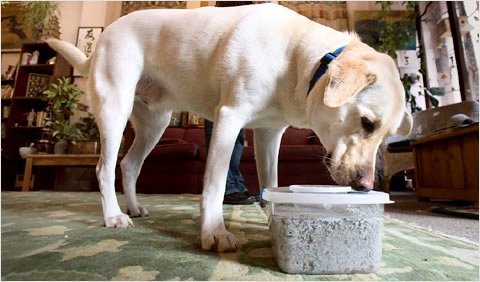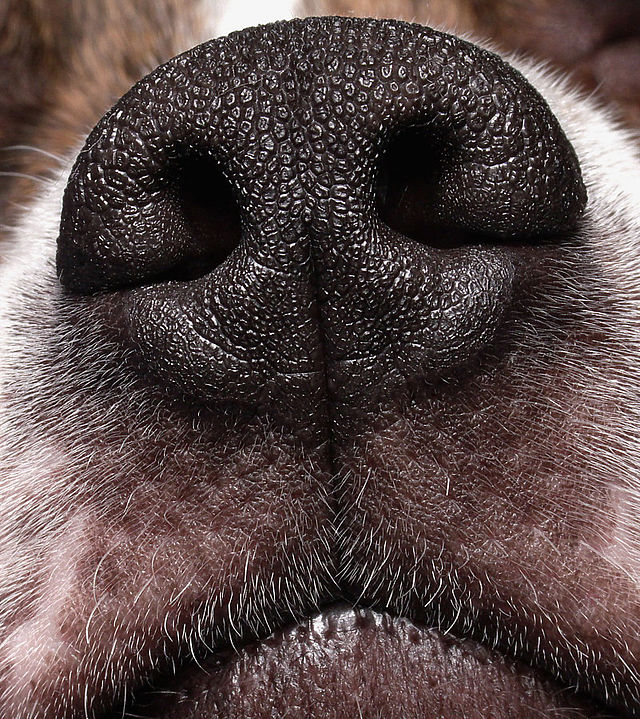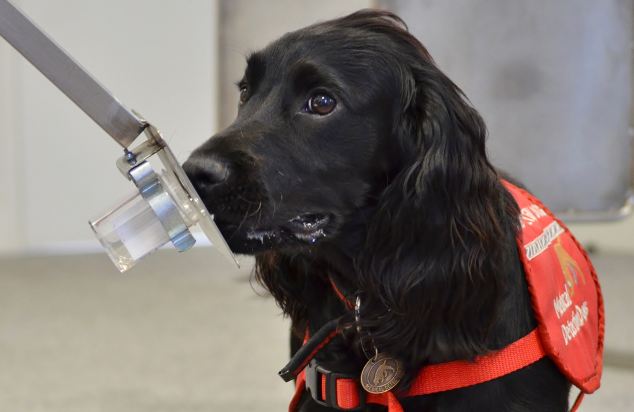Health News – Dogs can sniff out prostate cancer with uncanny accuracy, Italian researchers reported on Sunday. While it’s not a test that is ready for prime time, the findings suggest quick and accurate new ways to screen for the disease, which kills 29,000 U.S. men every year. And the report joins a growing list of studies showing that dogs can smell the byproducts of various types of cancer.
 “These dogs were really able to detect these particular compounds with a high degree of accuracy,” said Dr. Stacy Loeb of New York University, a urologist who was not involved in the study.
“These dogs were really able to detect these particular compounds with a high degree of accuracy,” said Dr. Stacy Loeb of New York University, a urologist who was not involved in the study.
Gianluigi Taverna of Humanitas Research Hospital in Milan and colleagues took urine samples from 320 men with prostate cancer, and 357 without it. The men with cancer had all different stages of the disease, from very low-risk, slow-growing tumors, to cancer that had spread.
Some of the men in the non-prostate-cancer group had other diseases or conditions, including other types of cancer.
One of the dogs detected every single prostate cancer case, and only hit false positives — when it identified cancer when it wasn’t there — in 2 percent of cases. The other dog was almost as accurate.
Taken together, the two dogs had an accuracy rate of 98 percent, the team reported to the annual meeting of the American Urological Association Sunday.
“We have definitely turned what used to seem a myth into a real clinical opportunity,” they wrote.
“These data show analysis of volatile organic compounds in urine is a promising approach to cancer detection,” said Dr. Brian Stork, a urologist at West Shore Urology in Muskegon, Michigan, who also was not involved in the study.
“The possibility of using dogs identifying cancer is something most would never have considered possible a decade or two ago. It’s an interesting concept that ‘man’s best friend’ could help save your life.”
The findings replicate a smaller study done with a single dog in France, who sniffed out prostate cancer in 33 samples.
Dogs have also sniffed out lung tumors and they are being tested to see if they can detect ovarian cancer.
Loeb points out that it is far too soon to say the dogs could be put to work screening men for prostate cancer. The dogs could smell compounds associated with prostate cancer, she noted. “What (the researchers) don’t say is how good these compounds are for predicting prostate cancer and, more important, for predicting aggressive prostate cancer,” she said.
“We’re very good at diagnosing prostate cancer,” she added. “What we really need are diagnostics that are better at helping us identify life-threatening prostate cancer.”
Prostate cancer is diagnosed in more than 230,000 U.S. men a year. There’s a debate now over whether too many men get diagnosed with and treated for prostate cancer that never would have caused them any harm. That’s because the disease can grow very slowly, and it’s difficult now to predict whose cancer is slow-growing and whose is dangerous.
BY MAGGIE FOX, nbcnews.com

